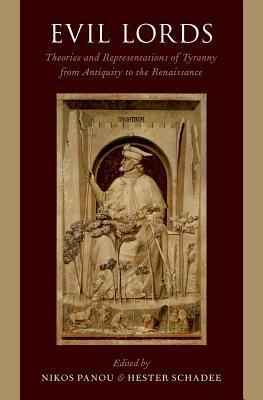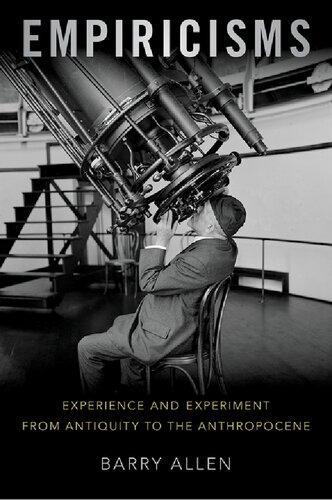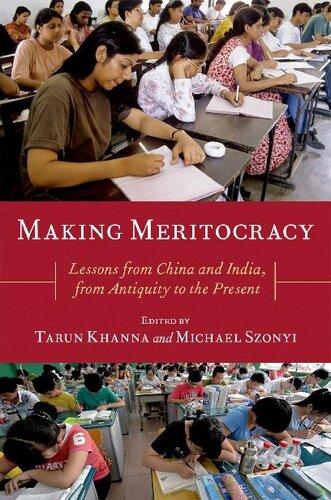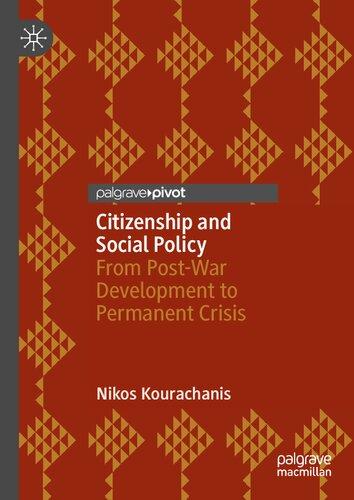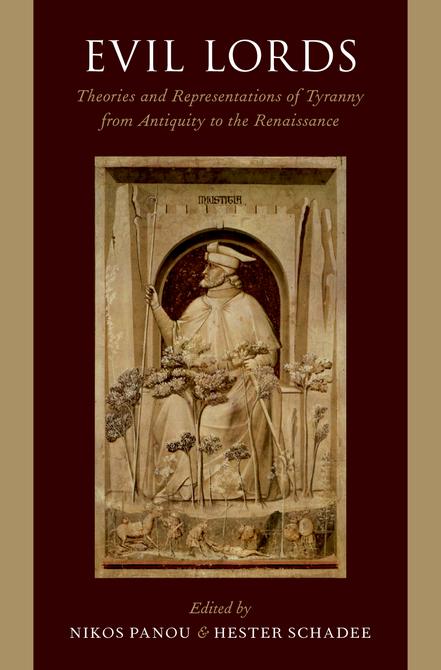1
Oxford University Press is a department of the University of Oxford. It furthers the University’s objective of excellence in research, scholarship, and education by publishing worldwide. Oxford is a registered trade mark of Oxford University Press in the UK and certain other countries.
Published in the United States of America by Oxford University Press 198 Madison Avenue, New York, NY 10016, United States of America.
© Oxford University Press 2018
All rights reserved. No part of this publication may be reproduced, stored in a retrieval system, or transmitted, in any form or by any means, without the prior permission in writing of Oxford University Press, or as expressly permitted by law, by license, or under terms agreed with the appropriate reproduction rights organization. Inquiries concerning reproduction outside the scope of the above should be sent to the Rights Department, Oxford University Press, at the address above.
You must not circulate this work in any other form and you must impose this same condition on any acquirer.
CIP data is on file at the Library of Congress
ISBN 978–0–19–939485–2
9 8 7 6 5 4 3 2 1
Printed by Sheridan Books, Inc., United States of America
Contents
Acknowledgments vii
Contributors ix
Introduction: Tyranny and Bad Rule in the Premodern West 1
Hester Schadee and Nikos Panou
1. The Discourse of Tyranny and the Greek Roots of the Bad King 11
Nino Luraghi
2. ‘A King Like the Other Nations’: The Foreignness of Tyranny in the Hebrew Bible 27
Jennie Grillo
3. Discourse of Kingship in Late Republican Invective 43
Yelena Baraz
4. Imperial Madness in Ancient Rome 61
Aloys Winterling
5. Contradictory Stereotypes: ‘Barbarian’ and ‘Roman’ Rulers and the Shaping of Merovingian Kingship 81
Helmut Reimitz
6. Tyrannos basileus: Imperial Legitimacy and Usurpation in Early Byzantium 99
John Haldon and Nikos Panou
7. Evil Lords and the Devil: Tyrants and Tyranny in Carolingian Texts 119
Sumi Shimahara
8. There Are No ‘Bad Kings’: Tyrannical Characters and Evil Counselors in Medieval Political Thought 137
Cary J. Nederman
9. A Crooked Mirror for Princes: Vernacular Reflections on Wenceslas IV ‘the Idle’ 157
Pavlína Rychterová
10. ‘I Don’t Know Who You Call Tyrants’: Debating Evil Lords in Quattrocento Humanism 172
Hester Schadee
11. Machiavelli’s Prince and the Concept of Tyranny 191
Gabriele Pedullà
Bibliography 211
Index 237
Acknowledgments
t his book has been long in the making, and many debts have been incurred along the way. It was conceived in the wake of the conference ‘Bad Kings’ organized at Princeton University in March 2010 by Nino Luraghi, to whom we are most grateful for allowing us to run with his ideas. We organized the ‘Second Day of the Bad King’ in March 2011, with the specific aim of completing the lineup of the volume, and it is our pleasure to thank the speakers, respondents, and audiences of both conferences for generating the debate that is reflected in this book. Nonetheless, a number of substitutions were required, which pushed back the deadline more than once: we therefore take this opportunity to thank our earliest contributors for their patience, and those who joined us later for the timely delivery of their texts. We are grateful to all for the expertise and interdisciplinary scope that they brought to this project. The volume was developed during our fellowships at Princeton’s Society of Fellows in the Liberal Arts, and subsequently at Ludwig-Maximilians-Universität and the University of Exeter, and at Brown University and Stony Brook University, respectively: the support of all five institutions is gratefully acknowledged.
Contributors
Yelena Baraz is Associate Professor of Classics at Princeton University. She works on Latin literature and cultural history with a focus on the late Republic and early Empire. She is the author of A Written Republic: Cicero’s Philosophical Politics (Princeton University Press, 2012) and co-editor, with Christopher van den Berg, of Intertextuality and Its Discontents, a special issue of American Journal of Philology (2013). She has written on Vergil, Seneca the Elder, Seneca the Younger, Pliny the Younger, Calpurnius Siculus, and Latin pastoral tradition. She is finishing a book on Roman conceptualization of pride as a negative social emotion.
Jennie Grillo is Assistant Professor of Old Testament at Duke Divinity School. She studied at Oxford and has held postdoctoral positions at Oxford, Harvard and Göttingen. Her first book, The Story of Israel in the Book of Qohelet: Ecclesiastes as Cultural Memory (Oxford University Press, 2012), won a Manfred Lautenschlaeger Award, and her research has been supported by fellowships from the ACLS, the Louisville Institute, the National Humanities Center, and the UK Arts and Humanities Research Council.
John Haldon is Shelby Cullom Davis ’30 Professor of European History; Professor of Byzantine History and Hellenic Studies; and Director of the Mossavar-R ahmani Center for Iran and Persian Gulf Studies at Princeton University. He is President of the Association Internationale des Études Byzantines, and a Corresponding Member of the Austrian Academy of Sciences. He is also a member of the Advisory
Council of the Wissenschaftscampus Mainz, and of the Advisory Council of the Haifa Centre for Mediterranean Studies, among others. His numerous publications include, most recently, A Tale of Two Saints: The Martyrdoms and Miracles of Saints Theodore ‘the Recruit’ and ‘the General’ (Liverpool University Press, 2016) and The Empire That Would Not Die: The Paradox of Eastern Roman Survival, ca 660-720 (Harvard University Press, 2016).
Nino Luraghi is the D. Magie ’97 Professor of Classics at Princeton University. A Greek historian specializing in social and cultural history and ancient historiography, he is the author of The Ancient Messenians: Constructions of Ethnicity and Memory (Cambridge University Press, 2008) and the editor of The Historian’s Craft in the Age of Herodotus (Oxford University Press, 2001) and of The Splendors and Miseries of Ruling Alone: Encounters with Monarchy from Archaic Greece to the Hellenistic Mediterranean (Franz Steiner Verlag, 2013).
Cary J. Nederman is Professor of Political Science at Texas A&M University. He is the author or editor of twenty books, including, most recently, Religion, Power and Resistance from the Eleventh to the Sixteenth Centuries: Playing the Heresy Card (Palgrave/Macmillan, 2014) and A Companion to Marsilius of Padua (Brill, 2012). He has also published well over one hundred articles and book chapters, including contributions to many leading journals in political science, history, philosophy, and medieval studies. He is currently President of the Board of Directors of the Journal of the History of Ideas.
Nikos Panou is Assistant Professor of Comparative Literature and Peter V. Tsantes Endowed Professor in Hellenic Studies at Stony Brook University. He has also been a postdoctoral fellow at the Seeger Center for Hellenic Studies and the Society of Fellows in the Liberal Arts at Princeton and a Visiting Assistant Professor of Comparative Literature at Brown University. Focusing mainly on the history and culture of southeastern Europe in the early modern period, he has written on topics ranging from post-Byzantine hagiography to seventeenth-century satire. He is currently finishing a book on advice literature in the Ottoman Balkans.
Gabriele Pedullà is Associate Professor of Italian Literature at University of Rome 3 and has been a visiting professor at Stanford, UCLA, and the École Normale Supérieure (Lyon), as well as Francesco De Dombrowski Fellow at Harvard University’s Villa I Tatti, a fellow at the Italian Academy for Advanced Studies at Columbia University, and Whitney J. Oates Fellow in the Humanities Council at Princeton. In English he has published In Broad Daylight: Movies and Spectators after the Cinema (Verso, 2012) and several articles on Renaissance political thought. He has also edited, with Sergio Luzzatto, a three-volume Atlante della letteratura
italiana (Einaudi, 2010-2012). His new edition and commentary on Machiavelli’s Prince (Donzelli, 2013) is forthcoming in English from Verso and is under translation in French, Spanish, and Portuguese.
Helmut Reimitz is Professor of History at Princeton University. His research focuses on the formation of a distinct Western Christian culture in the early Middle Ages, exploring features such as literacy and forms of communication, identity politics and social stratification, and modes of historical thinking. He is the author of History, Frankish Identity and the Framing of Western Ethnicity, 550-850 (Cambridge University Press, 2015) and has co-edited eight volumes, among which Motions of Late Antiquity: Essays on Religion, Politics, and Society in Honour of Peter Brown (Brepols, 2016) and Cultures in Motion (Princeton University Press, 2013).
Pavlína Rychterová is work group leader at the Institute for Medieval Research, Austrian Academy of Sciences, and was principal investigator in the ERC Grant ‘Origins of the Vernacular Mode’ (2011-2017). She is the author of two monographs on the late medieval reception of the Revelations of Bridget of Sweden (Böhlau, 2004; Filosofia, 2009) and has also published a number of articles and edited volumes, including Das Charisma: Funktionen und symbolische Repräsentationen (Akademie Verlag, 2008) and Origin Stories: The Rise of Vernacular Literacy in a Comparative Perspective (forthcoming). Her primary research interests are vernacular theological and catechetic literatures in the late Middle Ages, the evolution of religious-political discourses in medieval Europe, and the history of modern historiography and literary studies.
Hester Schadee is Lecturer in European History at the University of Exeter, having held fellowships at Princeton and LMU-Munich. She is interested in the cultural and intellectual history of late medieval and early modern Europe, with a research focus on Renaissance humanism and classical reception. She has published on authors ranging from Julius Caesar to Leonardo Bruni and Pier Candido Decembrio, and is co-editor and translator of Poggio Bracciolini, On Princes and Tyrants (forthcoming in The I Tatti Renaissance Library, Harvard). She is currently finishing a monograph on the afterlife of Caesar in Renaissance Italy.
Sumi Shimahara is Lecturer in Medieval History at Paris-Sorbonne University and a junior fellow at the Institut Universitaire de France. She is the author of Haymon d’Auxerre, exégète carolingien (Brepols, 2013) and has edited or co-edited Études d’exégèse carolingienne. Autour d’Haymon d’Auxerre (Brepols, 2007); Rerum gestarum scriptor. Mélanges Michel Sot (Presses de l’Université Paris-Sorbonne, 2012); and Imago libri. Les représentations carolingiennes du livre (Brepols, forthcoming). Her research focuses mainly on cultural history and biblical exegesis in the Middle Ages.
Aloys Winterling has been Professor of Ancient History at Humboldt-University Berlin since 2009, after holding professorships at the universities of Bielefeld, Freiburg/Breisgau and Basle/Switzerland. His main fields of research are social history and anthropology of the ancient Greek and Roman world as well as comparative studies of ancient and early modern monarchic courts. His publications include Der Hof der Kurfürsten von Köln, 1688-1794 (Röhrscheid, 1986); Aula Caesaris. Studien zur Institutionalisierung des römischen Kaiserhofes in der Zeit von Augustus bis Commodus (Oldenbourg, 1999); Politics and Society in Imperial Rome (Wiley-Blackwell, 2009); and Caligula: A Biography (University of California Press, 2011).
Evil Lords
i Introduction
Tyranny and Bad Rule in the Premodern West
Hester Schadee and Nikos Panou
‘ t yranny is the normal pattern of human government’— so stated Adlai Stevenson, the eloquent politician and diplomat who twice ran for US president. 1 This pithy phrase was not intended as an indictment of human nature or of the corrupting effects of power, but rather as a tribute to the intelligence of constitutional mechanisms that divide and circumscribe political authority. Without these checks and balances to prevent or minimize abuse of power, government, Stevenson implied, ipso facto equals tyranny. From this perspective, the political history of the premodern West is essentially a history of tyranny, until a legal-political technology— constitutionalism—provided the means to create an alternative. Leo Strauss, on the other hand, called tyranny ‘a danger coeval with political life’. 2 While agreeing on the ubiquity of bad rule, this observation suggests that tyranny is not a historical phase in political evolution but rather a condition that asserts itself at different times and in a variety of circumstances. In Strauss’s view, there is therefore no long-term systemic solution to tyranny; instead, it is an ever-present danger, lurking under the surface of ostensibly wellorganized states.
If the political catastrophes of the twentieth century spurred considerations of tyranny in modern states, evil lords—or at least flawed rulers—have demonstrably
1 Adlai Stevenson II, cited in F. Oakley, Kingship: The Politics of Enchantment, Oxford, 2006, p. 4.
2 L. Strauss, On Tyranny, eds V. Gourevitch and M. S. Roth, corr. and exp. edn, Chicago, 2013, p. 22.
H. Schadee and N. Panou
exercised the minds of men since the advent of written literature. The epic hero Gilgamesh, to name but one, was a source of fear and violence before he transformed into a good king. Two different types of problematic rulers are introduced in the Iliad, as the narrative inexorably unfolds from a clash between autocratic arrogance and heroic intransigence. Subsequent poets, historians, philosophers, theologians, orators, satirists, and educators of all sorts have addressed the topic of bad rule as much as, if not more than, that of good government. Much of this literature is didactic or hortatory in nature, seeking to counter or mitigate bad rule through education. Some of it examines the evil lord as a device through which his positive counterpart may be defined. Many texts are diagnostic, in that they offer scripts for recognizing and dealing with tyrannical administration. Some may even be apotropaic. But what all these writings have in common is a concern with how political societies should be administrated, and with the ways in which reality can or does fall short of these ideals.
The present volume uses the prism of tyranny or bad rule—the distinctions and overlap of both terms will be discussed below—to generate a better understanding of political discourse from the ancient world to the Renaissance. This topic has received less scholarly attention than theories of the good ruler or the ideal state, particularly in a cross-chronological framework.3 Yet, paraphrasing Tolstoy, one could claim that good lords are all alike, whereas bad ones tend to be bad in their own particular ways: that is to say, their misdeeds—and the manners of their evaluation— may be more tellingly specific than those of their better halves. For instance, bad or tyrannical governance, as Strauss and Stevenson suggest, may be attributed to human or systemic causes, identified pragmatically or in legal terms, and conceived
3 The most recent contributions on premodern monarchical ideals include Le savoir du prince. Du Moyen Âge aux Lumières, ed. R. Halévi, Paris, 2002; Le prince au miroir de la littérature politique de l’Antiquité aux Lumières, eds F. Lachaud and L. Scordia, Mont-Saint-Aignan, 2007; Concepts of Kingship in Antiquity: Proceedings of the European Science Foundation Exploratory Workshop Held in Padova, November 28th–December 1st, 2007, eds G. Lanfranchi and R. Rollinger, Padua, 2010; Le roi fontaine de justice. Pouvoir justicier et pouvoir royal au Moyen Âge et à la Renaissance, eds S. Menegaldo and B. Ribémont, Paris, 2012; and Every Inch a King: Comparative Studies on Kings and Kingship in the Ancient and Medieval Worlds, eds L. Mitchell and C. Melville, Leiden/ Boston, 2013. On tyranny (sometimes including ‘bad rule’), see primarily R. Boesche, Theories of Tyranny, from Plato to Arendt, University Park, PA, 1996; Mario Turchetti, Tyrannie et tyrannicide de l’Antiquité à nos jours, 2nd edn, Paris, 2013; Confronting Tyranny: Ancient Lessons for Global Politics, eds T. Koivukoski and D. E. Tabachnick, Lanham, MD, 2005; Tiranía: Aproximaciones a una figura del poder, eds G. Cappelli and A. Gómez Ramos, Madrid, 2008; Le tyran et sa postérité dans la littérature latine de l’Antiquité à la Renaissance, eds L. Boulègue, H. Casanova-Robin, and C. Lévy, Paris, 2013; and W. R. Newell, Tyranny: A New Interpretation, Cambridge/New York, 2013. Finally, two volumes with a double focus are Le philosophe, le roi, le tyran. Études sur les figures royale et tyrannique dans la pensée politique grecque et sa postérité, eds S. Gastaldi and J.-F. Pradeau, Sankt Augustin, 2009; and The Splendors and Miseries of Ruling Alone: Encounters with Monarchy from Archaic Greece to the Hellenistic Mediterranean, ed. N. Luraghi, Stuttgart, 2013.
of as covert control or open political violence. Furthermore, the types of crimes that constitute it can be seen as committed against the individual, society, or the cosmic order at large. And while its pernicious effects have been routinely execrated, tyrannical rule has on occasion also been justified as political necessity or even providential punishment. Precisely because of these many variables, we believe that there is value in a comparative study of the longue durée. But first a word on terminology is in order.
Naturally, the vocabulary used in discussions of bad rule—which in this volume span more than two thousand years and range from the Near East to England—has varied with time and place. Most important, ‘tyranny’ did not always exist as a category; when it did, it was frequently identical with bad governance, but sometimes an aggravated version thereof, while in other systems there could be ‘tyranny’ without bad governance. Similar issues pertain to the definition of the ‘tyrant’. Likewise, political theorists often use the word ‘prince’ to include any single ruler, yet in certain contexts a ‘prince’ must be distinguished from, say, a ‘king’, while in others a single ruler can be a ‘tyrant’ precisely because he is not also a ‘prince’. The essays in this volume discuss the legal or conceptual force of the relevant vocabularies in their specific historical contexts. Yet these differences should not obscure the fact that the discursive value of terms such as ‘tyrant’, ‘bad king’, ‘evil lord’, and so on is often the same. It is, indeed, this continuity—though blurred and imperfect—that makes a comparative study worthwhile, as it provides the foil against which the other variables gain relief. Starting from these premises, the book is intended to advance our knowledge on three levels.
First, the individual chapters present a collection of case studies that illuminate ancient, medieval, and Renaissance conceptions and representations of bad or tyrannical rule. Some contributors (Haldon and Panou, Rychterová, Schadee, Shimahara) analyze textual materials hitherto understudied or hard to access in English. Others (Baraz, Grillo, Luraghi, Nederman, Pedullà, Reimitz, Winterling) approach wellknown sources with new perspectives or hermeneutic strategies. A common pursuit of all authors is to identify the particularities of the historical moments they examine, while also relating these to broader themes.
Second, and following from this, the study of bad rule opens a window onto at least two sets of factors influencing politics and political thought. Theoretically speaking, it is an exploration of the idea of ‘badness’, an anti-value that elucidates and, as noted, sometimes generates, the complementary ‘good values’.4 Since bad
4 See, in this respect, Kakos: Badness and Anti-value in Classical Antiquity, eds I. Sluiter and R. M. Rosen, Leiden/Boston, 2008.
H. Schadee and N. Panou
rule is always a perversion of the norm, changes in its conceptualization demonstrate the shifting notions of what constitutes legitimate or acceptable human, social, and political behavior. The discourse of bad rule must therefore be seen in its relationship to ethical and metaphysical principles that contributed to the understanding of politics, as well as to broad concepts such as state and individual, liberty and happiness, human and divine justice. In practical terms, exploration of this discourse also brings to the fore the constituent elements and aspirations of actual political exchange: its authors and audiences, its means, and, especially, its ends. These factors are themselves culturally specific, and so embed the analysis in socio-political as well as intellectual history. Thus, by tracing conceptions of bad rule in eleven case studies, we uncover the ideological structures and societal patterns of the cultures in which they took shape.
Third, the chronological and geographical span of the volume creates a narrative of the ‘western tradition’ pertaining to bad rule from its ancient roots to its radical revision at the brink of modernity. The book addresses Hebrew and Greco-Roman foundations, transformations in the postclassical West and in Byzantium, vernacular translations, and finally revival and then rejection of the ancient heritage over the course of the Renaissance. These spatial and temporal frameworks are chosen because of their inherent cohesion, which will become apparent to the reader, but is not thereby self-explanatory. The scope of the volume therefore demands articulation both of the features of a ‘Western tradition’ on tyranny—or, indeed, of a category meaningfully called ‘the West’—and of the periodization ‘premodern’.
Our area of interest in this book is defined not so much by a shared political destiny or cultural identity as by the dynamic exchange of ideas. Indeed, while conceptions of bad rule derive from shared roots, the vitality of the tradition results precisely from the different political and intellectual contexts in which these seeds branched out, bore fruit and cross-fertilized. Underlying this interdependent plurality, we believe two contradictory motives driving the discourse of tyranny can be discerned. On the one hand, there is a long-standing and fundamental unease with monarchs, generated by their arbitrary, unchecked, and as it were extrainstitutional power. From this point of view, all monarchs are bad rulers. This perspective arises, independently, in the Hebrew Bible and in Greek and Roman thought, with the Greek perception also influencing the later Hellenizing sections of the Old Testament. After antiquity, its fortunes declined, but its influence never disappeared completely. On the other hand, there was an almost constant imperative—practical as well as intellectual—to accommodate monarchical supremacy. The concept of sacral monarchy, an ancient Near Eastern model also preserved in the Hebrew Bible, and furthermore expounded in Hellenistic philosophy of monarchy, played an important role in this respect, providing both Catholic and Orthodox Christianity with
their typical dualistic frameworks.5 In this construction, the earthly sovereign ruled by divine right and was the mirror, as well as the minister, of the heavenly lord: a mediator between human beings and the supreme and eternal king of the cosmos. In this providential harmony, the existence of anything but good rulers needed to be explained. Consequently, bad kings—undeniably common occurrences—were reinterpreted as either a punishment from God, or led astray by bad counselors, or not kings at all but tyrants, and thus deprived of legitimacy and divine support. Indeed, it is in this guise of tyrant that one recognizes the longevity of the bad king of the anti-monarchical tradition, who regained his independent existence with the Italian Renaissance.
Diametrically opposed though these perspectives are, a connective thread of both the pro- and the anti-monarchical tradition lies in the criteria employed for assessing bad rule. By and large, these derive from virtue ethics in their Greek, Roman, and Christian incarnations.6 In virtue ethics, the source of moral behavior, as well as the basis for moral judgment, is the character of the individual—in other words, the sum of intrinsic traits, or settled dispositions, that define his or her personal identity and social interactions.7 From the very start, Western virtue ethics and political philosophy were intimately intertwined. Aristotle’s foundational Nicomachean Ethics develops the theory of virtue strictly within the parameters of civic life, since virtuous character—and, therefore, happiness—can only be achieved by citizens within the context of the city state. His equally seminal Politics treats virtue as a criterion for distinguishing good and bad regimes, and for determining both the optimal constitution and the distribution of political offices in the city.8 The elevation of princely virtue as a requirement for the happiness and welfare of the political community at large reflects the Hellenistic advocacy of monarchy within this
5 See J. Hani, Sacred Royalty: From the Pharaoh to the Most Christian King, transl. G. Polit, London, 2011; and La royauté sacrée dans le monde chrétien, eds A. Boureau and C. S. Ingerflom, Paris, 1992. For the early modern theory of divine-right kingship, rooted in medieval ideas on the divine provenance and sacred aura of royal authority, see J. N. Figgis classic The Divine Rights of Kings, 2nd edn, Cambridge, 1914; and, more recently, M.-F. Renoux-Zagamé, Du droit de dieu au droit de l’homme, Paris, 2003, esp. pp. 246–316.
6 Cf. R. Balot, Greek Political Thought, Malden, MA, 2008, p. 12: ‘There is ample scope to speak of “virtue politics” in the ancient world, by analogy with the virtue ethics for which ancient philosophy has become well known. The virtues and vices therefore played a larger and more consistent role . . . than they could in modern political discourse.’ See also, in this respect, J. R. Fears, ‘The Cult of Virtues and Roman Imperial Ideology’, Aufstieg und Niedergang der römischen Welt, II.17.2, 1981, pp. 827–948; and Princely Virtues in the Middle Ages, 1200–1500, eds I. P. Becjzy and C. J. Nederman, Turnhout, 2007.
7 For a survey of premodern and modern theories of virtue ethics, see, most recently, The Cambridge Companion to Virtue Ethics, ed. D. Russell, Cambridge/New York, 2013.
8 See A. MacIntyre’s discussion of Aristotle’s account of the virtues in After Virtue: A Study in Moral Theory, 3rd edn, Notre Dame, 2007, pp. 146–64; and W. R. Newell, ‘Superlative Virtue: The Problem of Monarchy in Aristotle’s Politics’, Western Political Quarterly, 40:1, 1987, pp. 159–78.
H. Schadee and N. Panou
general Aristotelian framework.9 Consequently, from antiquity to the Renaissance, the legitimacy and effectiveness of monarchical rule were viewed as in large measure dependent on the moral rectitude of the ruler—a quality that, moreover, was seen as instrumental in securing the love, respect, and loyalty of his subjects. Conversely, the sovereign’s failure to cement his life and governance on the exercise of virtue and eradication of vice could only result in conduct antithetical to the common good, and consequently in compromised legitimacy.
In the sixteenth and seventeenth centuries, other paradigms of political theory— reason of state as well as a new absolutism—while by no means constituting a complete break with the past, nonetheless complicated or rejected reliance on virtue as the foundational principle of government.10 In brief, the former current of thought—traditionally associated with Machiavelli—excused certain vices as pragmatically necessary for governance. The latter allowed the argument—archetypically advanced by Thomas Hobbes—that virtue and vices alike were superseded by the greater good of unchallengeable sovereignty. From both perspectives, the demise of the Aristotelian understanding of political morality marks the end of the bad ruler as a personally flawed, indeed evil, lord. We have taken this shift—in terms of political philosophy, at least—to be the boundary between premodern and modern; it thereby also marks the terminus of the volume at hand.
The starting point for an enterprise of this sort is inevitably the ancient Greek world, where both the discourse of tyranny and Western political thought as a discipline originate. The volume therefore begins with Nino Luraghi’s systematic discussion of the essential attributes of the tyrant in ancient Greece, whence both the term and the concept spread throughout the West. Seen against the background of Greek cultural and moral values, the tyrant emerges as a radically marginal character, a violator of the accepted norms of sociability, a monstrous aberration. Thus, tyranny
9 See, for instance, T. Adam, Clementia Principis. Der Einfluss hellenistischer Fürstenspiegel auf den Versuch einer rechtlichen Fundierung des Principats durch Seneca, Stuttgart, 1970. For an overview of the theory and practice of Hellenistic monarchy, see F. W. Walbank, ‘Monarchies and Monarchic Ideas’, in The Cambridge Ancient History, vol. 7:1: The Hellenistic World, eds idem, A. E. Astin, M. W. Frederiksen, and R. M. Ogilvie, 2nd edn, Cambridge/New York, 1984, pp. 62–100.
10 For reason of state, see M. Viroli, From Politics to Reason of State: The Acquisition and Transformation of the Language of Politics, 1250–1600, Cambridge/New York, 1992; R. Tuck, Philosophy and Government, 1572–1651, Cambridge/New York, 1993; and Raison et déraison d’État. Théoriciens et théories de la raison d’État aux XVIe et XVIIe siècles, ed. Y.- C. Zarka, Paris, 1994. On early modern absolutism, see Absolutism in SeventeenthCentury Europe, ed. J. Miller, New York, 1990; but cf. the revisionist approaches in N. Henshall, The Myth of Absolutism: Change and Continuity in Early Modern European Monarchy, London, 1992; Der Absolutismus— ein Mythos? Strukturwandel monarchischer Herrschaft in West- und Mitteleuropa (ca. 1550-1700), eds R. G. Asch and H. Duchhardt, Cologne, 1996; and in Absolutismus, ein unersetzliches Forschungskonzept? Eine deutsch-französische Bilanz / L’absolutisme, un concept irremplaçable? Une mise au point franco-allemande, ed. L. Schilling, Munich, 2008.
was perceived and depicted not as a bad political alternative but as a primordial sort of evil: a taboo that cannot be rationalized. Yet, the discourse of tyranny, Luraghi argues, underpinned the whole concept of monarchy in Greek culture, to the point that the typical virtues of the ideal ruler were nothing more than a reversal of the negative traits of the tyrant.
From Greek thought, we move to a second foundational corpus, as Jennie Grillo explores the—not unrelated—question of what it means to be a bad king in the Hebrew Bible. Her answer focuses on a particular type of marginality, to wit foreignness in various forms. Exotic otherness is shown to have served as a basic negative trait already in the central strata of the biblical corpus, while originally Greek conceptions of oriental despotism influenced the depiction of bad kingship in postexilic texts. By contrast, in textual layers of a still later date, all earthly kingship is dismissed as evil: as Grillo observes, a long history of disappointment with bad Jewish kings led to the biblical proclamation of Yahweh as the only lord fit to rule over Israel.
Yelena Baraz then examines the anti-monarchical discourse that was indigenous to Rome since the expulsion of the kings. Through a study of the lexicographic range of the words rex (king) and regnum (kingship), she parses the accusations of ‘regal aspirations’ abounding in political writings of the late Republic. Although associated with the last Roman king, the ‘tyrannical’ Tarquin, these terms were not indicative of constitutional positions. Rather, in the rhetoric of faction politics, they suggest the traits of arrogance and rampant ambition. Thus refining our understanding of political discourse in the final years of the Republic, Baraz also paves the way for a new understanding of Julius Caesar’s dictatorship and its critical assessment before and after his assassination.
This same inherited stigma of kingship, as well as the legacy of noble faction, form the backdrop to Aloys Winterling’s chapter, which reinterprets the archetypical ‘tyrannical emperors’ Caligula, Nero, and Domitian. Winterling falsifies the psychological approach of nineteenth-century and early twentieth-century scholarship and instead analyzes the emperors in the context of, on the one hand, the paradoxical sociopolitical conditions of early imperial Rome and, on the other, Rome’s traditional aristocratic ideals. In Winterling’s treatment, supposed insanity becomes a strategy for unmasking (Caligula), superseding (Nero), or breaking down (Domitian) the contradictions inherent in the imperial res publica. Provocatively, his reconstruction suggests that it is the traditional ‘good emperors’ who are in need of explication.
Entering the postclassical world, Helmut Reimitz examines what happened when Roman power structures were inhabited by so-called barbarian, ‘do-nothing’ kings. Focusing in particular on the multilayered depiction of Chilperic I (c. 539–589) in the Histories of Gregory of Tours, Reimitz shows that the Merovingian kings are
H. Schadee and N. Panou
rebuked not only for barbarous and un- Christian behaviors but also, surprisingly, for being ‘too Roman’. These critiques, he argues, originate with local political and ecclesiastical elites, who feared a destabilizing displacement of their own authority and jurisdiction as the Merovingians strove to centralize their state after the model of Rome. Once again, therefore, foreignness of various kinds becomes the marker of a bad king, this time reflecting the interplay between the complex sociopolitical developments of the sixth century and the Roman imperial tradition.
The following chapter shifts the focus to the Eastern empire, examining the evolution of perceptions of tyranny in Byzantium from the late Roman period to the eighth century. John Haldon and Nikos Panou show that these constitute the inverse of crucial concepts in Byzantine imperial ideology, particularly with regard to issues of religious orthodoxy, moral integrity, military efficiency, and administrative competence. Furthermore, they argue that the nature and scope of these perceptions can be better understood when examined in conjunction with the discourse of tyrannicide and usurpation as deployed in a broad spectrum of historical, hagiographic, and propagandistic works. The discussions commonly surrounding cases of legally precarious coups d’état offer insights into when, how, and why political actors came to be considered as tyrants in the first centuries of the Byzantine millennium.
Perceptions of tyranny are again the subject of Sumi Shimahara’s chapter, as she discusses the ways in which terms deriving from the root tyran- were employed in biblical commentaries and other sources of the Carolingian era. Shimahara shows that eighth- and ninth-century authors developed a distinct discourse on tyranny by blending pagan and patristic views with their own ethical-political principles. Carolingian conceptions of tyranny were grounded in considerations pertaining both to legality and to morality, with vice, eschatological concerns, and the association with the devil playing as important a role as issues of illegitimacy, usurpation, or malfeasance. These conceptions were moreover fairly elastic, as related terms not only had a wide connotative range but were also used to describe a variety of abusive behaviors of a royal, secular, or ecclesiastical origin.
Cary Nederman complements this with a study of the conceptual impossibility of the ‘bad king’ in the medieval Latin West—a conundrum that caused evil lords to be defined exclusively as tyrants. Nonetheless, political theorists from Isidore of Seville to John of Salisbury, Thomas Aquinas, and Dante display a remarkable ambivalence toward the tyrant’s role in civic life. While condemned in normative political theory, tyranny was often viewed as acceptable when a populace was deemed incapable of benefiting from good government, or—as Haldon and Panou show regarding Byzantium—it was legitimized as an instrument of divine punishment. Nederman demonstrates furthermore that even overtly tyrannical behavior could be
countenanced by attributing it not to the prince himself but to his evil counselors, who were subjected to much scrutiny in high and late medieval mirrors for princes.
The later Middle Ages saw a growing importance of the vernacular languages: their role in shaping the form, content, and audiences of late medieval political thought is the subject of Pavlína Rychterová’s inquiry. Focusing on a famously wicked king of the late Middle Ages, Wenceslas IV (1361–1419), she traces the origins of his bad reputation to a group of fourteenth- and fifteenth-century writings, which are often dismissed as fictions or studied solely as literature, but in fact represent new modes of articulating good and bad kingship. Rychterová shows that, in the context of an increasingly literate bourgeois culture, especially in university cities, these vernacular works transformed Latin theological approaches to monarchy, while rendering mirrors for princes and related literatures accessible to an unprecedented audience.
The following chapter returns to Latin discourse, as Hester Schadee seeks to define what fifteenth-century humanist treatments of tyranny have in common, and what distinguishes them from their classical and medieval counterparts. To this end, she confronts the numerous (self-)contradictions in the works of Poggio Bracciolini, educated in republican Florence, and Giovanni Pontano, employed in Naples by the royal dynasty. While their arguments range from the rejection of all rulers as tyrants to the education of the ideal prince, both authors depend on the same philosophical frameworks (Aristotle and the Stoa) and rhetorical form (epideictic oratory). Typical for the Quattrocento, these texts make no claim to universal validity, and Schadee argues that they should be read with due recognition of the conventions of literary genre, and humanism’s culture of debate.
The volume concludes with an examination of Machiavelli as a theorist who enacted a willful and radical break with the past, yet endorsed most of his predecessors’ tenets. Starting from Machiavelli’s provocative omission of the term ‘tyrant’—in favor of the euphemism ‘new prince’—and his reassessment of ‘tyrannical’ behaviors as princely prudence, Gabriele Pedullà shows how these maneuvers earned the Florentine the execration of generations of commentators. They, however, misread him. Rather than denying the existence of pragmatically and morally evil lords, Pedullà argues, Machiavelli redraws the boundary between them and good rulers. Instrumental in this is the concept of glory, which reveals itself only in the fullness of time. In the present, Machiavelli implies, it is therefore impossible to distinguish with certainty a good prince from a tyrant.
These eleven chapters amply demonstrate that the execution of power was a constant source of anxiety from antiquity to the Renaissance. This is perhaps inevitable, since power is synonymous with inequality—be it in wealth, force, status, or other resources—and therefore carries with it the risk of oppression and the threat of violence. Evil lords were those rulers who capitalized on these differentials
H. Schadee and N. Panou
to the detriment of their inferiors, or who obtained their advantages against the dispositions of an even greater power—whether law, ancestral custom, or divine will. Because of the enormity of these transgressions, evil lords were often marginal while being powerful: marked out as foreign, monstrous, irrational, or even devilish, they were in one or more ways inhuman. At the same time, they were part of the human condition, both in everyday experience—because power and its corruptions are ubiquitous—and in the structural sense of defining the ideals and limitations of the body politic.
Consequently, particular instantiations of evil lords illuminate their respective societies’ ideologies and actual power structures—or, not uncommonly, the tension between these factors. This interplay determines, for instance, whether an evil lord is designated ‘king’ or cannot be a king, and whether tyrannical behavior marks an aristocrat in a monarchy or a barbarian in the post-Roman world. Additionally, the manifold sources that engage with evil lords—which vary in purpose, authorship, and audience—are testament to the different cultural elites who partook in and shaped political debate. Such elites were not always identical with those who held power, yet their discourse could serve to co-opt or even control—or at least to master and intellectually—the might of others. From the vantage point of history, it is of course they who are responsible for creating and codifying evil lords. Through their writings, then, a story of evil lords unfolds that is universal as well as extremely variegated: we hope that the following chapters provide the reader with rich and stimulating insights on both scores.
The Discourse of Tyranny and the Greek Roots of the Bad King
Nino Luraghi
i
l ike many of the words for our political concepts and institutions, ‘tyranny’ and ‘tyrant’ come from the Greek via Latin transliteration. As is the case with most Greek words whose derivations are in use in our own political language, this relationship can easily be misleading. In common parlance, if used in a political sense the word ‘tyrant’ indicates an oppressive ruler, typically an autocrat who exerts unrestrained power. The Greeks would have had no problem in recognizing their turannos in this definition. But very many of the rulers that a person of our times would call tyrants also occupied or occupy some sort of constitutionally defined position, even when their de facto power was (or is) unlimited—many of them even won elections and/or wore official titles, if often created ad personam. In reference to modern history, the word ‘tyrant’ usually conveys a negative judgment over a legitimate king. On the contrary, the turannoi who ruled several Greek poleis at different points in time from the seventh century BCE onward were leaders of autocratic regimes with no constitutional or legal foundations whatsoever that typically emerged from situations of civil strife within the polis. Such regimes were mostly unstable and always short-lived. The impact of the turannoi on the constitutional development of the Greek polis is agreed to have been nonexistent, and certainly tyranny never became an office integrated in the constitution of any Greek polis. 1
1 The standard work of reference on Greek tyranny is H. Berve, Die Tyrannis bei den Griechen, 2 vols, Munich, 1967. For a shorter introduction in English, see now S. Lewis, Greek Tyranny, Bristol, 2009.

